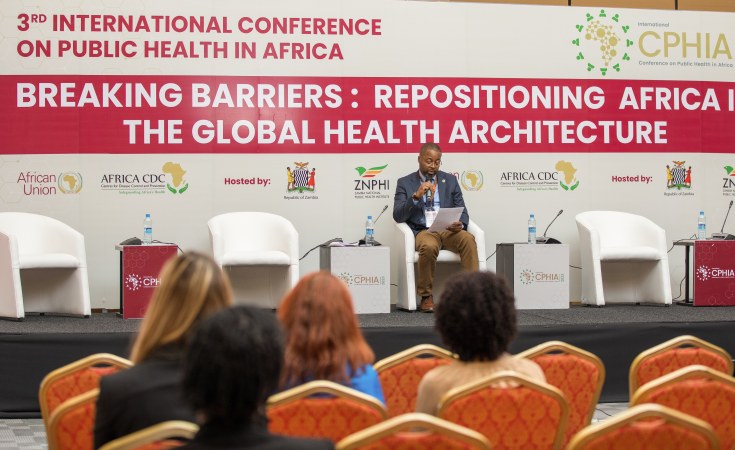CPHIA is an annual conference organised by the Africa CDC that provides a unique African-led platform for leaders across the continent to reflect on lessons learned in health and science.
The Director-General of the Africa Centres for Disease Control and Prevention (Africa-CDC), Jean Kaseya, on Monday said it is time for the African region to take charge of its public health system and strengthen it.
Mr Kaseya said this at a press briefing ahead of the official opening of the 3rd International Conference on Public Health in Africa (CPHIA) holding in Lusaka, Zambia.
He said the region must improve its public health system to halt its vulnerability to disease outbreaks.
The conference is themed: "Breaking Barriers: Repositioning Africa in the Global Health Architecture".
"We believe we have the ambition to position not only Africa but Africans in the global health space."
Mr Kaseya said it is time for the world to hear from Africans and acknowledge the presence of African leaders.
He noted that African leaders have the power and capacity to bring everyone together, saying the continent is contributing to global health security.
"Today, we are celebrating a great moment where Africa is hosting the world to discuss ways we can break the barriers. We have to acknowledge what Africa is bringing to the world and what it is giving to the world," he said.
About CPHIA 23
CPHIA is an annual conference organised by the Africa CDC. The conference provides a unique African-led platform for leaders across the continent to reflect on lessons learned in health and science and align on a way forward for creating more resilient health systems.
This year's conference is holding in Lusaka, Zambia from 27 to 30 November to showcase new and exciting scientific discoveries.
Improved public health
Speaking at the briefing, the Director, Institute of Health Research and Co-chair of CPHIA 2023, Margaret Gyapong, said Africa is witnessing an unprecedented leap in health technology innovations.
Ms Gyapong said this innovation includes mobile health applications that provide remote consultations, to tech medicine platforms connecting patients with specialised care.
She explained that technology is bridging the healthcare access and delivery gap in Africa.
She noted that the success of these groundbreaking innovations rely on robust collaborations between governments, private sector entities and Civil Society Organisations.
"Public Private Partnerships are fostering knowledge exchange, resource mobilisation and technology ampifying the impact of innovation in public health," she said.
She also noted that African scientists and researchers are leading the charge in developing groundbreaking vaccines tailored to address regional disease burdens including malaria, and tuberculosis amongst others.
She said the groundbreaking initiative with the new malaria vaccine demonstrates the significant contribution of African scientists and researchers to addresing regional disease burden.
"The efforts reflect the commitment of African governments, international organisation and partners to improve public health outcomes and protect its citizens from vaccine-preventable diseases."
In her remark, the Minister of Health, Zambia, Sylvia Masebo, said the president of Zambia's commitment to the health strategic agenda perfectly aligns with the Africa CDC's mission to public health institutions to detect and respond effectively to disease threats in the region.
Ms Masebo, who also doubles as the chairperson of the Africa CDC governing board, said she is optimistic that the conference will positively impact the region.
She also urges the media and other partners to support "this great course of repositioning Africa in the global health architecture."
"I implore the media to spread the word about Africa's commitment to global health as a key player," she said.


